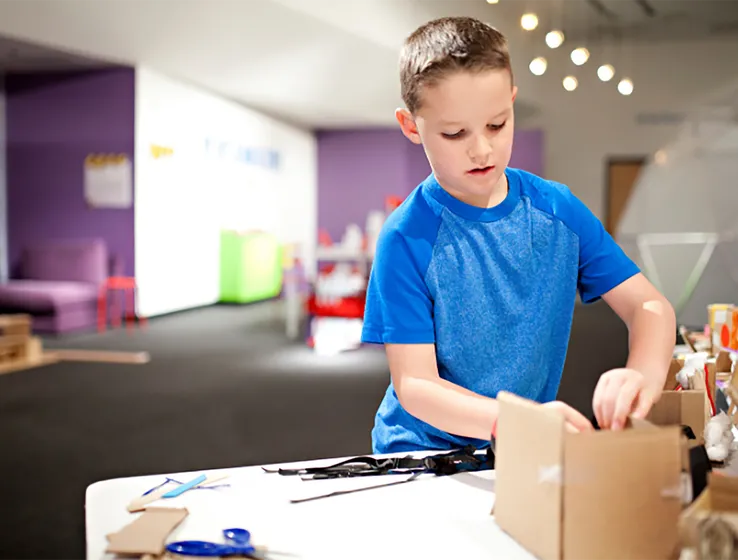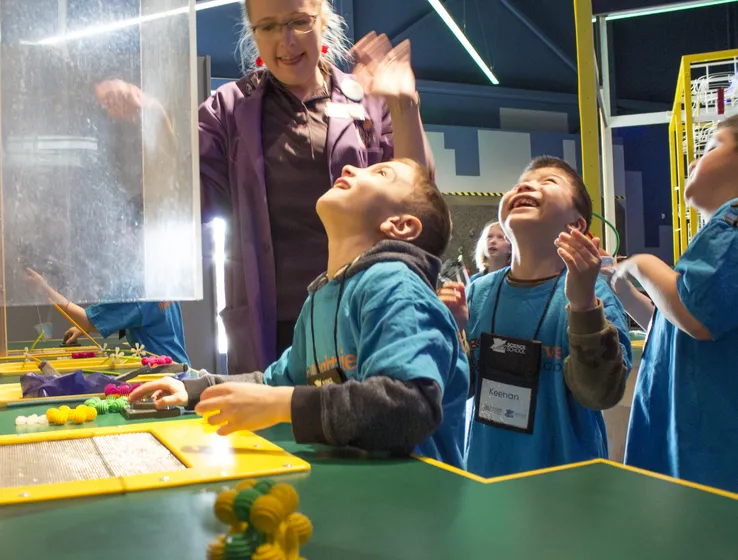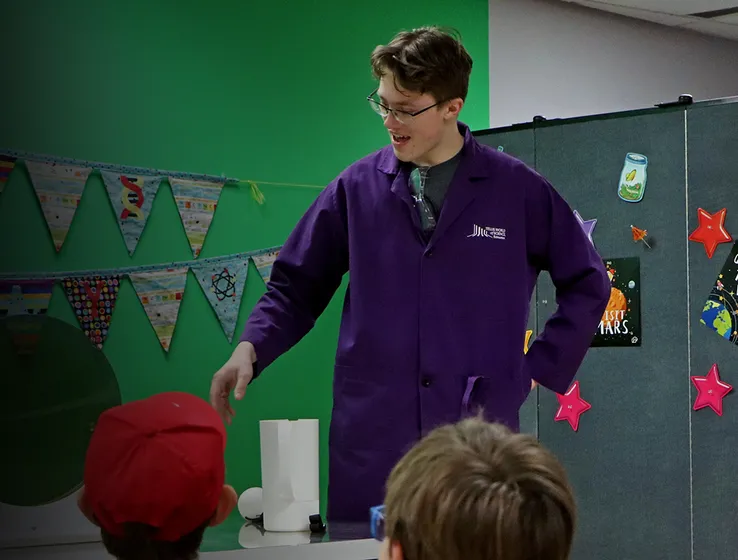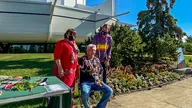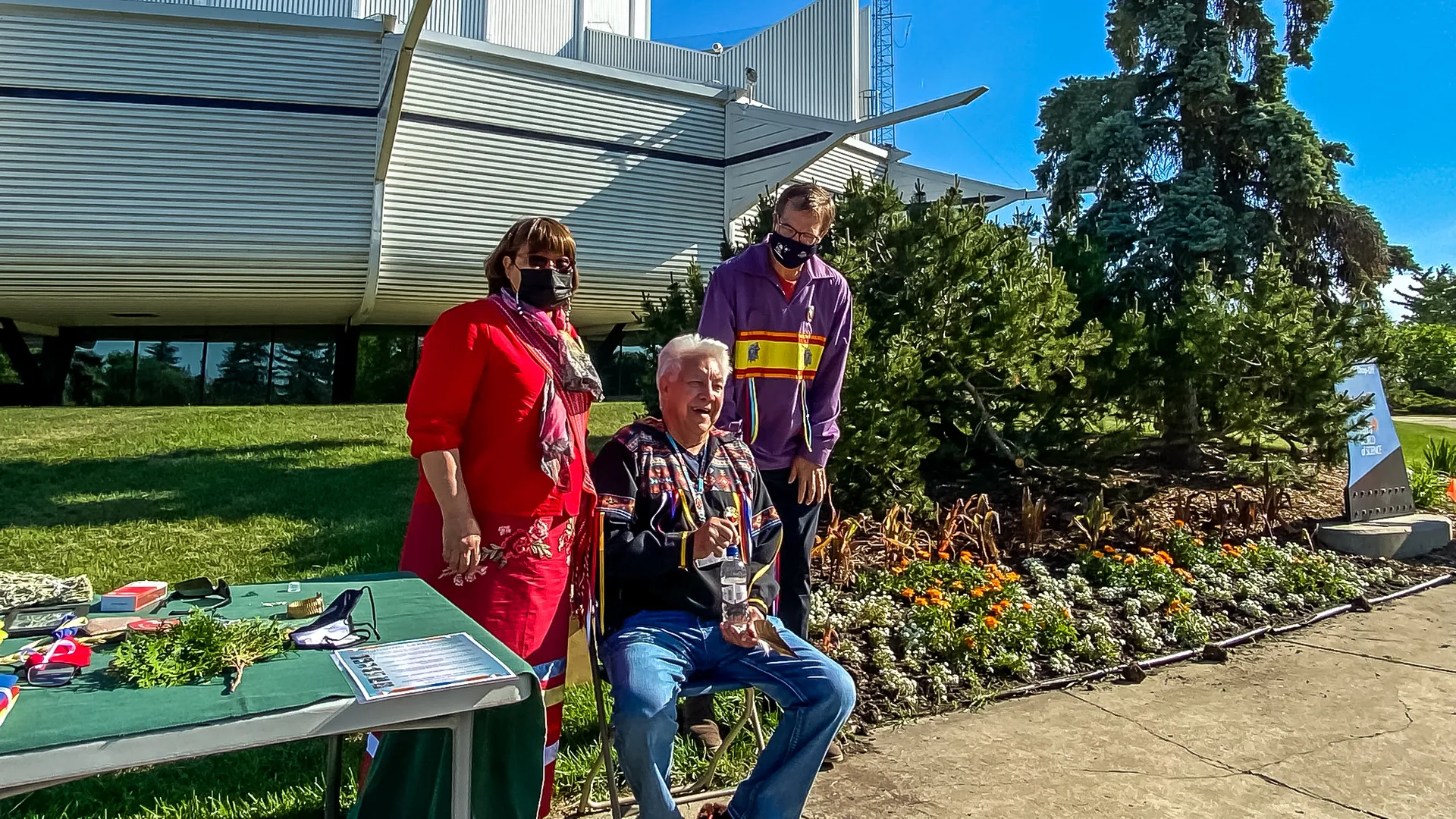Elders & Knowledge Keepers
Posted:
For National Day of Truth and Reconciliation on September 30, we encourage you to reflect and learn about Indigenous culture and history. In this blog, Lynn Lush discusses the significant role of Elders in First Nations, Métis and Inuit communities.
Meet Lynn Lush, she’s the Indigenous Land Based Learning Navigator at TELUS World of Science – Edmonton and the author of this blog.
Lynn Lush (whose Indigenous name is Blue Thunderbird woman - ozhaawashko binesi ikwe) is originally from Manitoba. Lynn grew up in British Columbia with her adopted family. She is a survivor of the residential school system and the Sixties Scoop. At age 13, she started a journey to reclaim her traditional knowledge. She was taught by Elder Albert Lighting in Alberta, and several Elders from Manitoba, Nova Scotia, and British Columbia.
Lynn has lived in Edmonton for 10 years and is very active with Indigenous organizations. She enjoys teaching and sharing her knowledge with students and others curious about Indigenous culture. Lynn is an accomplished craftsperson and teaches how to make fish scale art, dreamcatchers, medicine pouches, ribbon skirts. She also holds traditional knowledge in healing medicines.
There are various kinds of Indigenous Elders:
In the Indigenous community, Elder’s are grandfathers, grandmothers, and wisdom keepers who are role models for our Culture and Language. An Elder is not only defined by age, they are recognized by earning the respect of their community. They have earned the title through a mixture of wisdom, harmony, and balance of their actions in their teachings.
Our Elders and Knowledge Keepers are the cultural advisors who teach in their community and provide support and leadership wherever needed.
Cultural Elders: Maintain knowledge and the practices of ceremonies, sweat lodge, traditional powwows, healing circles, pipe ceremonies, fasting and feast as well as seasonal ceremonies.
Spiritual Elders: Provide leadership and counselling to individuals and groups when looking for guidance, often lead traditional healing ceremonies and circles.
Traditional healers: Have the knowledge traditional medicines, including how and when to gather, store, prepare and distributions of the medicines along with Traditional holistic healing.
Ceremonial Elders: Hold the knowledge of the ceremony and related objects like the medicine bundles and bags, pipes for pipe ceremonies, sweat lodges, drum, rattles, whistle’s along with an eagle feather, tobacco, sage, cedar and sweetgrass.
Community Elders: Advocate for their communities by designing initiatives and programs that cover justice, governance, health, education, and careers.
Teaching Elders: Hold the oral traditions in culture and language and training for a wide audience, including cross cultural training.
Knowledge Keepers: Someone who has been taught by an Elder or a senior Knowledge Keeper within their community. This person holds traditional knowledge and teachings, they have been taught how to care for these teachings and when it is and is not appropriate to share.
September 30 is the National Day for Truth and Reconciliation.
From September 29 – October 3, 2021, the Science Centre will be hosting special guests and offering programming that focuses on Indigenous perspectives. Learn more and get involved.
Related Articles

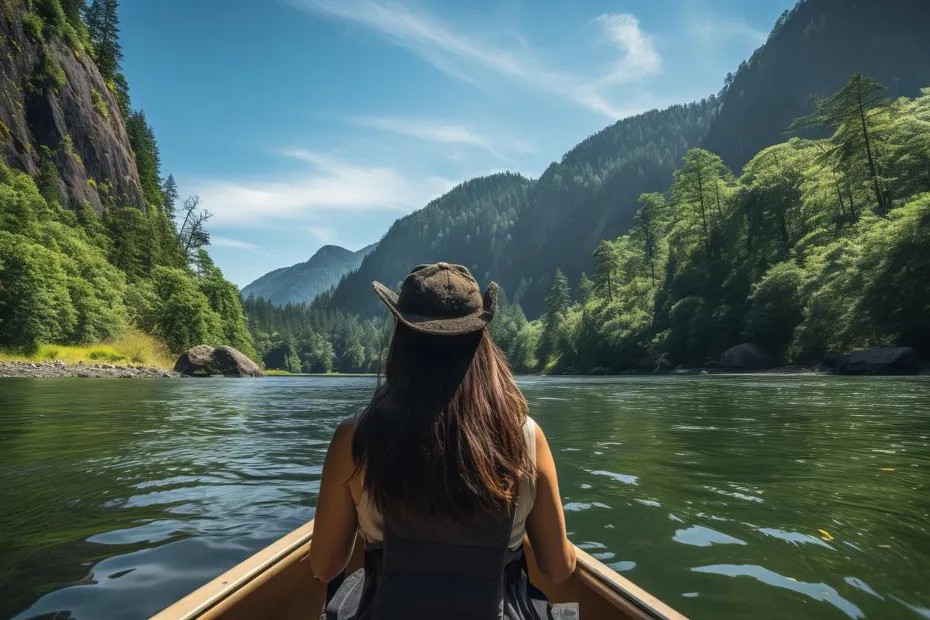
Food Chain Reactions
How Climate Change is Impacting Canada's Lakes

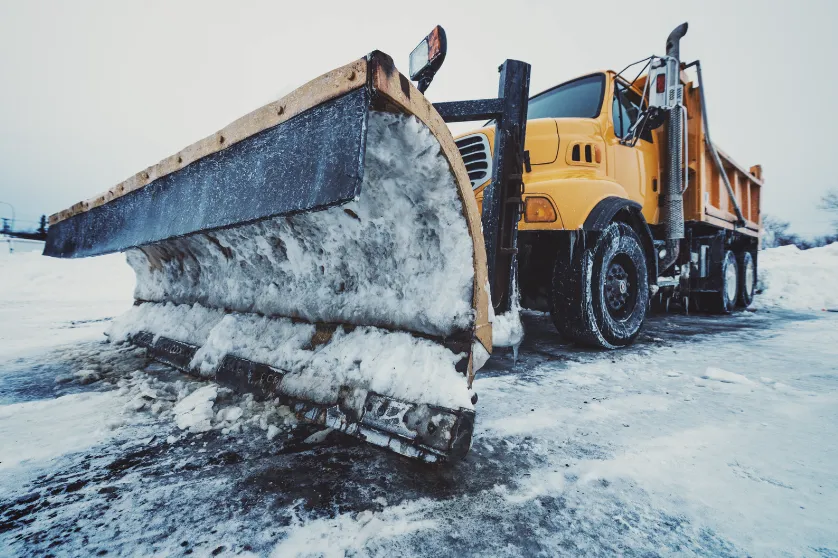
It Is Ice to See You
How Seasonal Connections Are Affected by Climate Change

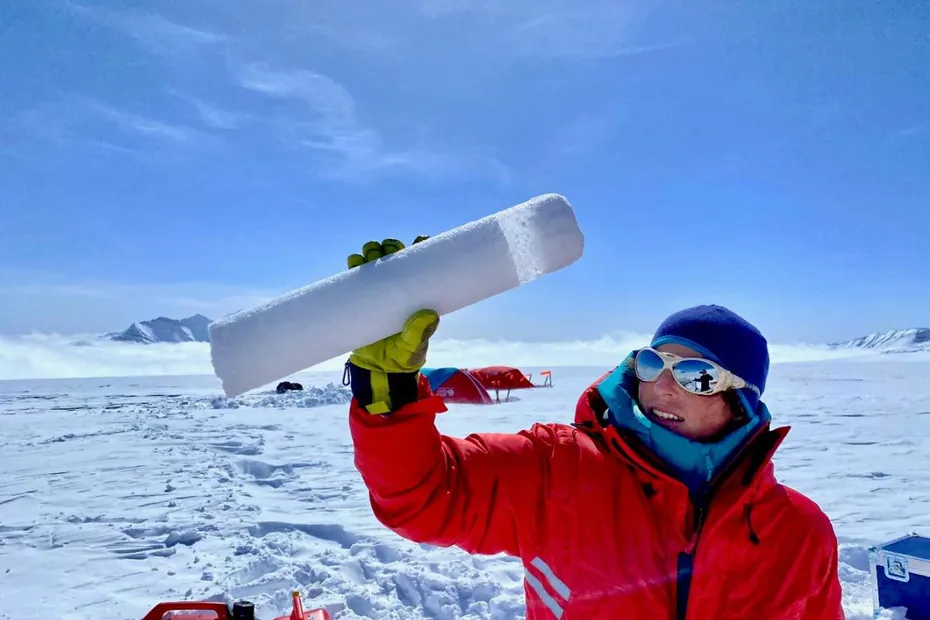
Getting to the Core of Climate Change
A Look at How Refrigerants Are Affecting Our Environment through Ice Cores
Related Articles


Food Chain Reactions
How Climate Change is Impacting Canada's Lakes


It Is Ice to See You
How Seasonal Connections Are Affected by Climate Change


Getting to the Core of Climate Change
A Look at How Refrigerants Are Affecting Our Environment through Ice Cores
